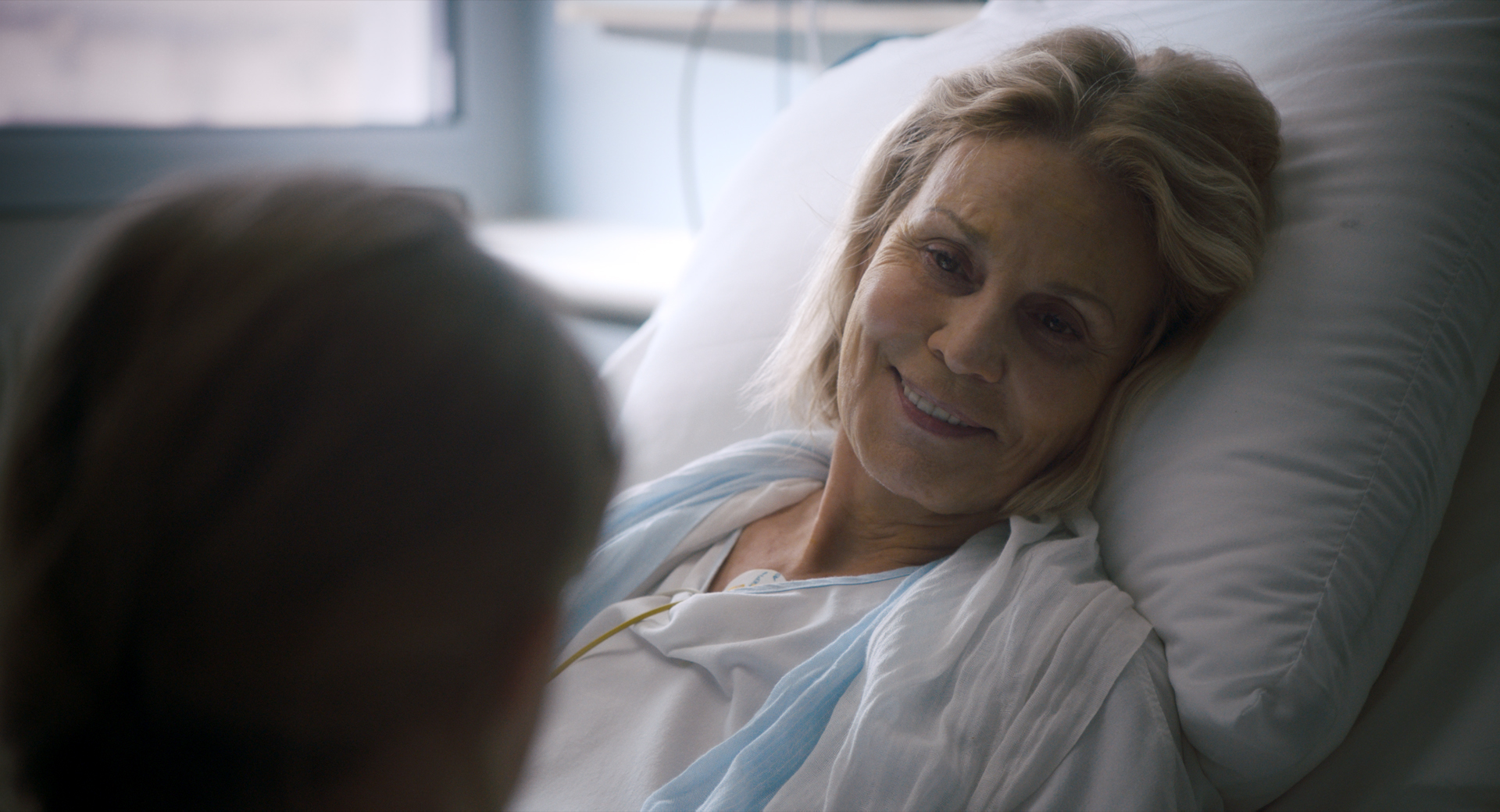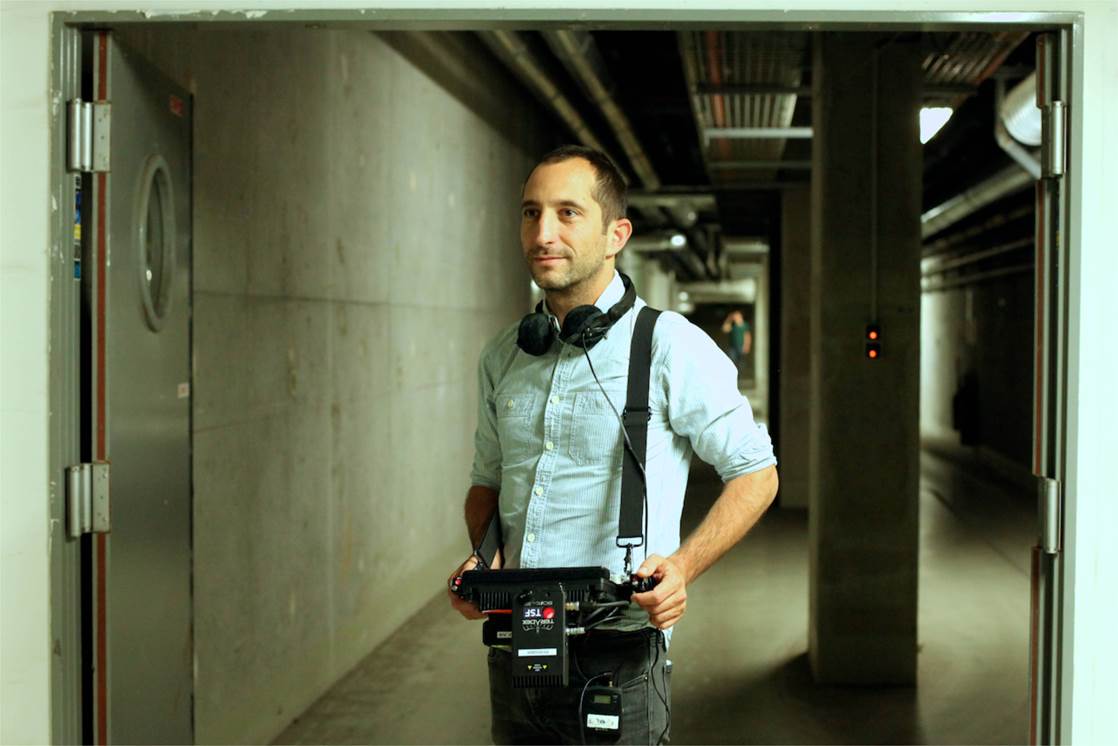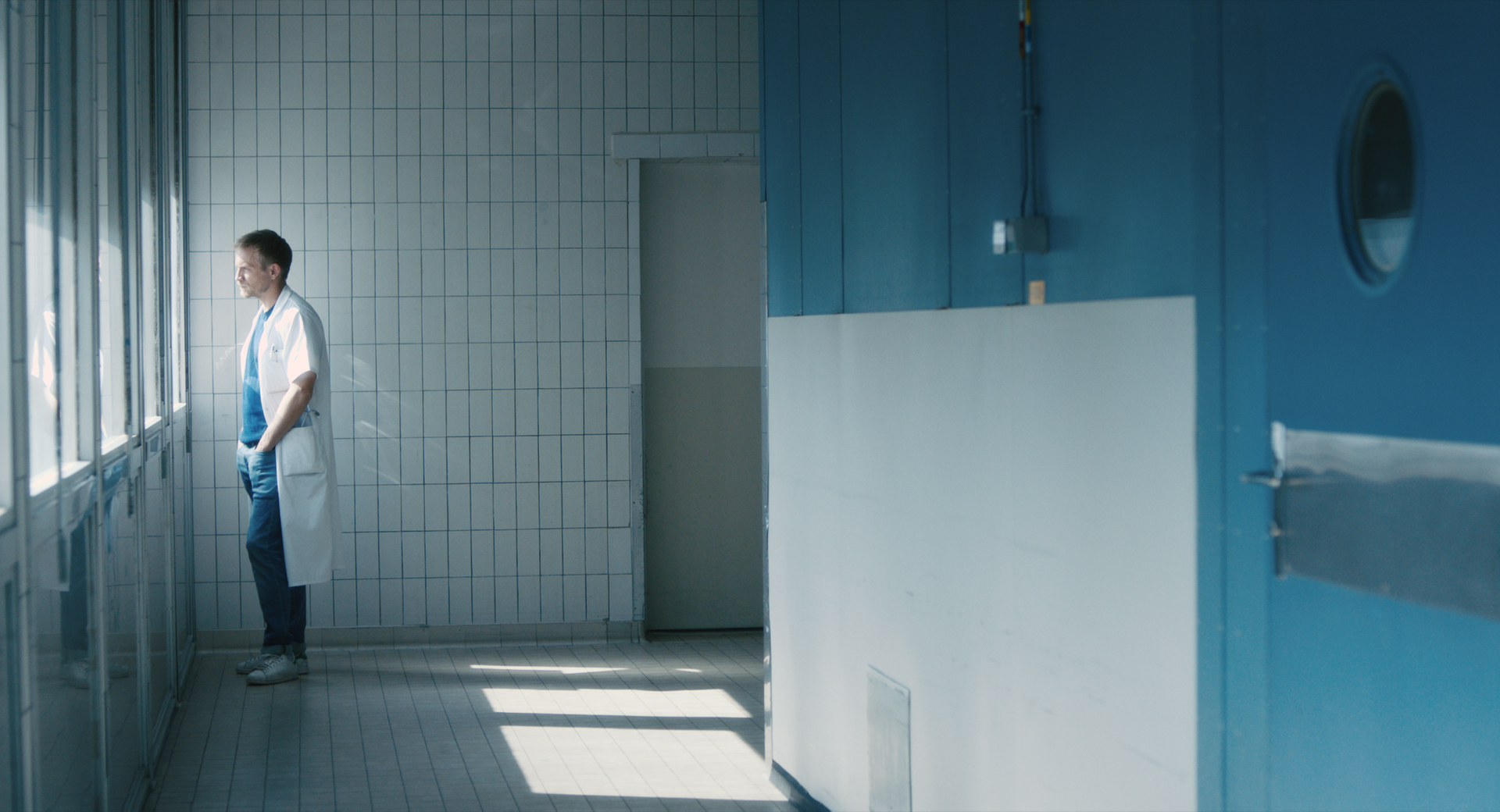Locarno: ‘Breath of Life’ Director David Roux: ‘I Still Have Trouble Calling Myself A Director’
By Ben Croll
LOS ANGELES (Variety.com) – LOCARNO – When director David Roux brings his film “Breath of Life” to the festival’s glitzy Piazza Grande on Thursday August 2, he will be culminating a journey that began long before the onetime theatre journalist began work on this feature debut.
Starring Jérémie Renier as an ICU surgeon dealing with the impending death of a parent (Marthe Keller), the film pulls from several disparate points in the director’s own life, resulting in a work that’s one part medical procedural and one part family drama, tied together with a surprisingly subtle touch.
What are the roots of your first feature?
I come from a family of doctors. Both of my parents were doctors and my older brother is a doctor as well. As a child, going to the hospital meant going to my parents’ office. The hospital was a warm, inviting place for me, whereas for most it can feel more imposing. My experience there was quite different from that depicted in most series and films. And so I always wanted to show that different vision of hospital life. And then I lost my mother in 2012. She had been sick for many years, and spent her last months in the hospital, and the film is really very autobiographical in that sense. Jérémie Renier’s character — an ICU pulmonologist confronting his own powerless once his mother gets sick –is quite directly inspired by my older brother.
You developed this project for many years, taking it first to La Femis’ screenplay workshop and then to the Emergence young director’s residency. What was you experience like at these various incubators?
While I was editor-in-chief of a theatre magazine I made a few short films, starting in 2008. In 2014, I did the screenplay workshop at La Femis, which is a continuous training, something you can do while working elsewhere… [There] I came to understand that the mother-son relationship was the heart of the project. Before, I had thought the film to be about the hospital, focusing on the repetitive daily lives of those who work there. Now the film is much more centered on this doctor’s relationship with his family, and that really came from the development period at La Femis.
Emergence is a residence that takes six directors and allows them to shoot two scenes from the projects they’re working on before it actually goes into production. You shoot two scenes in totally professional conditions, and doing so allows you to work with a full crew and to gain experience with actors. You have to pass a sort of contest to get in, first by sending in your script and then passing an oral exam. The residence then lasts three weeks, where you meet with a number of experts, going over things like screenplay, casting and production. Doing so allows you to get concrete answers for a production that up until now had only existed on the page. In my case, it allowed me to rewrite strengthened by my experience. It helps you really get into the active process of making a film. Having made only two shorts before, I had very little onset experience, so it offered me crucial practice working with actors.
At what point in that process did you switch from David Roux the apprentice to David Roux the filmmaker?
I still have trouble calling myself a director. As of now I’ve only made one film… Happily, making a movie takes enough time that you’re not dropped onto the set as soon as you finish the screenplay. You have time to grow while things come together, and so ideally once you start to shoot you know what you want. At no point did I say, “wow, I’m making a film!” Quite the opposite, it’s a day-by-day grind, a multitude of small decisions, and in the moment you never realize their collective impact. And I find that daily grind very reassuring!
The film offers a very subdued approach to what could be an intensely emotional story. Could you tell us about this choice to tamp down melodrama.
It comes from the screenplay but also the mise-en-scene. It’s a question of distance – the distance of the camera, the distance between the characters and how they each experience the moment. For me, you first have to approach things as a viewer, and as a viewer, I hate forced emotions. I find it counterproductive to push things too hard. While comedy does need a bit of emphasis, drama works best when one considers the viewer as an adult, able to invest as they see fit.
Keeping a distance wasn’t complicated, really; I just tried to make the film that I would wish to see. Of course, as the film is very personal, I did need to protect myself and keep a certain distance. And so in order to protect myself, I needed to keep a kind of propriety.
One of the personal elements you do explore is the characters’ relationship to their Ashkenazi Jewish culture. Why was it important to you to develop those questions in the film?
It all came from my own story, and the story of my mother, whose own family died in the camps. All of that existed in our lives, and was decisive for my mother, so when I admitted that the film would be as much about the family as about the hospital, those religious/cultural connections worked their way in very organically. My mother really did have an entire Yiddish choir come sing to her in palliative care, where normally you’re only allowed one person at a time. In fact, the same women who came to sing for her are the ones we use in the film. Once again, reality worked its way into the film. And naturally, Yiddish culture is all about life continuing no matter what.
With both “Breath of Life” and the film/television work of Thomas Lilti, French doctors seem to be finally getting their showbiz dues. What do you think accounts for this renewed interest?
Thomas Lilti started as a doctor, while I’m from a family where everyone else became a doctor but me. So perhaps it was my way to better connect with that. Hospitals and illnesses can cause great fear, and that’s exactly why we should confront those subjects in film. Cinema, like all art forms, can tackle such anxieties and defang them. I couldn’t say if there was a larger message or movement, but I think Thomas’ success comes from this need to drain fear from otherwise anxiety inducing places.
The film benefited from substantial investment from Canal+. As that company enters an uncertain future, I can imagine many filmmakers feel a similar unease.
Proportionally, Canal’s investment was enormous. When we started shooting, it represented something like two-thirds of the film’s budget. And we received this financing just when [Vivendi director Vincent] Bolloré took control of the film division. So just at the moment things began to get complicated for them. I don’t know exactly how things are going to change, but I know that many filmmakers are looking to other actors for the financing help Canal+ had previously offered. It’s very uncertain now… If they do reduce their film funding slate, I just don’t know what’s going to happen. I only hope I get to make another film before then!
How’s that going?
I’m in the middle of writing it now. It’s a literary adaptation, a French novel — nothing to do with medicine.



